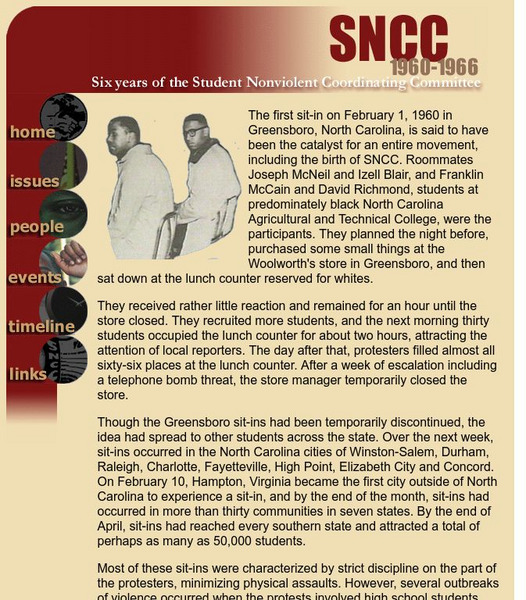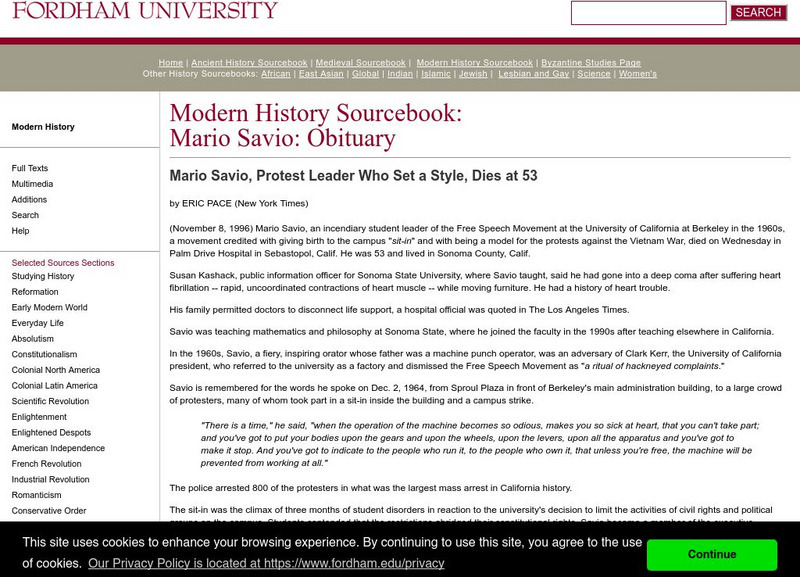iCivics
I Can’t Wear What?
Can schools ban t-shirts picturing musical groups or bands? Your young citizens will find out with this resource, which includes a summary of a United States Supreme Court case from the 1960s about a similar dispute over students wearing...
ibiblio
Ibiblio: Greensboro Sit Ins
This site, which is provided for by Ibiblio, contains a background of the beginning and subsequent spread of the sit-ins during the 1960s.
Smithsonian Institution
National Museum of American History: Lisa Law Timeline 1963 1973
This timeline shows some very important events in the ten year span between 1963 and 1973. It is a quick, brief overview by year.
New York University
Sds: Students for a Democratic Society
Resource offers annotated explanation of a number of university student protest organizations, including Students for a Democratic Society and its chapter at New York University in 1965.
Khan Academy
Khan Academy: Sncc and Core
Read about the Congress for Racial Equality (CORE) and the Student Nonviolent Coordinating Committee (SNCC), two groups that played pivotal roles in organizing nonviolent protests during the Civil Rights Movement of the 1950s and 1960s.
Encyclopedia Britannica
Encyclopedia Britannica: Percy Ellis Sutton
Brief account of the life of Percy Sutton, a prominent civil rights attorney who represented Malcolm X as well as some 200 people arrested in the 1960s during protests against racial segregation in the American South.
Digital History
Digital History: The War at Home
By the middle of the 1960s, American public opinion was beginning to favor US withdrawal from the Vietnam War. After the Tet Offensive in 1968 and Nixon's secret bombings of Cambodia, the majority of Americans were calling for complete...
Internet History Sourcebooks Project
Fordham University: Modern History Sourcebook: Mario Savio
This site from the Fordham University offers bio and obituary of Mario Savio, 1960's leader of the Free Speech movement.
PBS
Pbs: American Experience: Freedom Riders: James Farmer
Biographical snapshot of James Farmer, who, in the early 1960s, was responsible for initiating the freedom rides to protest racial inequality in America. .








